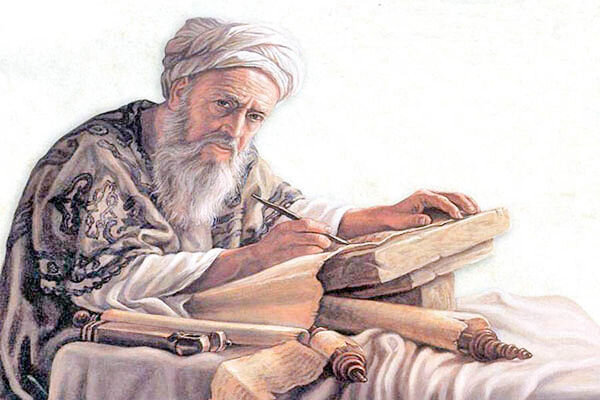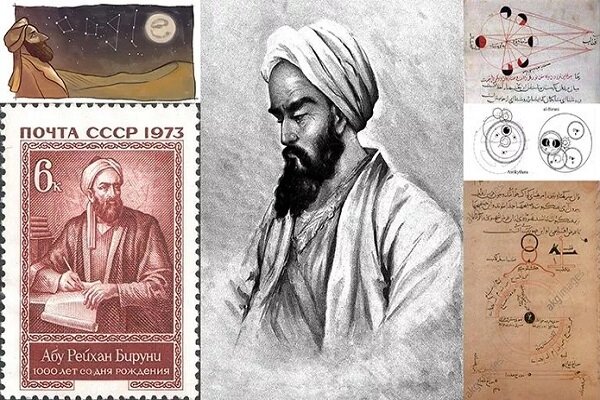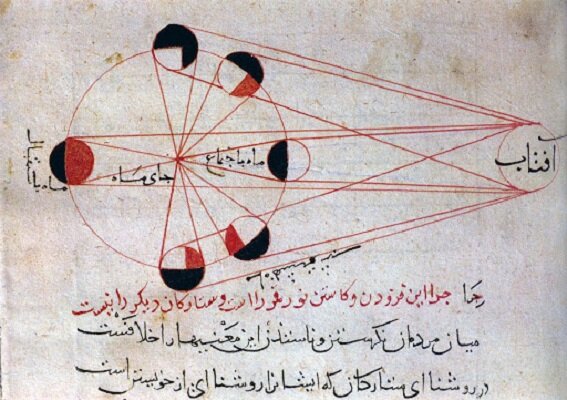Abu Rayhan al-Biruni: Icon for cultural convergence
Published: September 8, 2025

Given his multifaceted contributions to various scientific disciplines, Abu Rayhan Al-Biruni may be considered a beacon for cultural convergence in the region.
Today, September 4th, marks the national commemoration day of the illustrious Iranian polymath, Abu Rayhan al-Biruni.
Abu Rayhan Al-Biruni, born in present-day Uzbekistan, embarked on his quest for knowledge, lived in Gorgan, Iran, where he studied and taught, traveled to India to explore the unknown, and ultimately found his place in modern-day Afghanistan.
He is celebrated as a remarkable and multi-dimensional figure in various scientific fields, including mathematics, astronomy, medicine, history, and philosophy.
His contributions and scientific legacy remain some of humanity’s most invaluable treasures even over a millennium later.
Al-Biruni is recognized as the founder of comparative religious studies. In addition to his masterpieces in the methodology of science during the 4th and 5th centuries AH, a significant aspect of his thought and scientific endeavors revolves around the discussion of comparative religion studies.
Abu Rayhan al-Biruni was more than a repository of knowledge; he was a process for discovering it. His commitment to truth, his respect for human dignity, and his boundless curiosity provide a timeless framework for building bridges across the chasms of culture, religion, and ideology.
As we face global divisions, his legacy urges us to replace fear with inquiry and assumption with evidence. By embracing the spirit of Al-Biruni—the scientist, the humanist, the global citizen—we can cultivate a more inclusive, informed, and peaceful world, proving that the pursuit of knowledge remains humanity’s most powerful unifying force.
Abu Rayhan al-Biruni: Icon for cultural convergence
 How an 11th-century polymath lights path for 21st-century global dialogue
How an 11th-century polymath lights path for 21st-century global dialogue
On this day, we don’t just commemorate a historical figure; we celebrate a timeless intellectual beacon. Abu Rayhan al-Biruni possessed a mind so vast and a methodology so modern that his work transcends the millennium that separates us from him.
To grasp the scale of al-Biruni’s genius, one must first understand the intellectual golden age in which he thrived. The 4th and 5th centuries AH (After Hijra) were a period of unprecedented scholarly fervor within the Islamic-Iranian civilization.
This era produced other legendary figures, such as the physician and alchemist Zakariya al-Razi, whose medical compendiums were used for centuries in Europe, and Ibn al-Haytham, whose groundbreaking work in optics laid the foundation for the modern scientific method.
Yet, al-Biruni distinguished himself even among these giants. Where others delved deep into single disciplines, al-Biruni mastered the connections between them.
He was the quintessential synthesizer. His astronomical calculations, for instance, were refined by his advanced mathematical theories and informed by his philosophical understanding of physics.
He approached knowledge as a vast, interconnected web. This holistic worldview was his greatest innovation, allowing him to see patterns and relationships that more specialized scholars might have missed.
Al-Biruni did not just study the world; he sought to understand its underlying unity. Perhaps al-Biruni’s most stunningly modern achievement was his founding of the field of comparative religion.
At a time when intercultural encounters were often defined by conquest and polemic, al-Biruni chose the path of empathetic, objective inquiry. His masterwork, “Ta’rikh al-Hind” (The History of India), remains a landmark of ethnography and religious studies.
His methodology was revolutionary and remains a gold standard for researchers today.
Before writing a single word, al-Biruni spent years learning Sanskrit. He believed that to understand a culture’s soul, one must engage with its primary texts and speak to its people in their own language.
He translated key Indian texts into Arabic, not to appropriate them, but to make their wisdom accessible and to ensure his analysis was based on direct evidence, not hearsay or prejudice.
Al-Biruni suspended judgment. He documented Hindu philosophy, cosmology, and social customs with meticulous detail, striving to present them as a Hindu scholar would understand them, not through an external theological lens.
He challenged the prejudiced views common in his day, arguing that understanding another faith did not weaken one’s own but expanded one’s comprehension of the divine and the human experience. He sought common ground, identifying philosophical concepts in Hindu thought that resonated with Greek and Islamic ideas, thereby highlighting a shared intellectual heritage of humanity.
Al-Biruni’s contributions to the hard sciences were monumental. He calculated the Earth’s radius with an error margin of only 1%—a feat of astounding accuracy for his time. He authored over 146 works, though only about 22 have survived.
Designing new instruments, compiling astronomical encyclopedias, and developing new computational methods, providing detailed descriptions of minerals, crafting sophisticated maps, writing pharmacopoeias that documented the properties of drugs and herbs from various cultures, as well as theorizing on the speed of light and the nature of energy are some of his outstanding contributions.
His driving force was a commitment to empirical evidence. He trusted observation, measurement, and repeatable experiment over pure deduction or accepted dogma. This evidence-based approach is the very cornerstone of modern science, making al-Biruni a pivotal figure in its history.
Abu Rayhan al-Biruni: Icon for cultural convergence
 Al-Biruni’s Lesson for the 21st Century
Al-Biruni’s Lesson for the 21st Century
Why does a scholar from a thousand years ago matter so much today? Because the challenges he addressed—cultural division, religious misunderstanding, and the politicization of knowledge—are the very challenges that define our current era.
Al-Biruni’s legacy provides a powerful framework for navigating our interconnected world:
In an age of misinformation, al-Biruni is a model of integrity. He teaches the value of going to the source, verifying information, and representing different viewpoints with accuracy and fairness. His work is a testament to the idea that the truth is not found in echo chambers but through rigorous, on-the-ground investigation.
He exemplifies interdisciplinary learning. The biggest problems we face—climate change, public health crises, global inequality—cannot be solved by one field alone. They require the synthesizing spirit of an al-Biruni, who could bring together data from geography, sociology, economics, and ethics to form a complete picture.
On a personal level, al-Biruni’s life is a call to intellectual curiosity and humility. He reminds us that engaging with a culture different from our own is not a threat but an opportunity for enrichment. He inspires us to move beyond stereotypes, to ask questions, and to listen deeply.
Reported by Tohid Mahmoudpour
/MNA/
